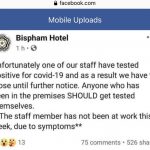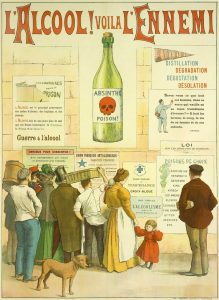 It’s been crazy out there. Election results are in. What the heck happened, other than we all have a new leader? And we say the end of that freakish warm streak that saw the garlic sitting around for an extra month before I got it in the ground. And Bills even lost to the Jets. My buddy Ben was there, went hard.. and then suffered. The beer was both a good choice and not maybe such a good choice. I understand this is in fact not live action footage from later that night. But it might be similar. Me, I am too old to get up to stuff like this.
It’s been crazy out there. Election results are in. What the heck happened, other than we all have a new leader? And we say the end of that freakish warm streak that saw the garlic sitting around for an extra month before I got it in the ground. And Bills even lost to the Jets. My buddy Ben was there, went hard.. and then suffered. The beer was both a good choice and not maybe such a good choice. I understand this is in fact not live action footage from later that night. But it might be similar. Me, I am too old to get up to stuff like this.
What’s up? Brewery altitude, that’s what!* That was in fact a new subject raised this week. A new one in Bavaria at 2,244m it will be the highest brewery in Europe. Lion Stout was also brewed at height in Sri Lanka… until it wasn’t:
They don’t any more, having transferred down to sea level, but they and all the other high-altitude breweries in British India, all over 2,000 metres up, in the Himalayan foothills and the Nilgiri Hills in the south, had the same problem, and had to do 3-hour boils of the wort.
I’d be needing the meters above sea level listed on every can of beer I buy now. Aaaannnnd what else? Brewdog. Not again. Sells its beer in Qatar through the state. Set to make zillions broadcasting the World Cup in its pubs. And then pretends to take the high road. I know no one cares as we’ve all been here before but the moments need to be recorded because otherwise no one would believe it. Plus – the beer may well suck as well.
 Speaking of questionable foreign marketplaces, this is an interesting chart describing the rise and fall of wine consumption in China from 1995 to 2021. Made me wonder what’s up with the beer market but you have to cut through this sort of PR inflected haze to determine what is really happening:
Speaking of questionable foreign marketplaces, this is an interesting chart describing the rise and fall of wine consumption in China from 1995 to 2021. Made me wonder what’s up with the beer market but you have to cut through this sort of PR inflected haze to determine what is really happening:
Beer sales are declining in China, but there is still room for expansion in the higher end of the market. And while Budweiser’s brand identity in the U.S. is irredeemably low end, in China the idea of luxury Bud is completely marketable.
The Foreign Agricultural Service of the US Department of Agriculture issued a report on beer in China back in January 2022 which indicated that the beer market was tracking that of wine, peaking a year later in 2018. Interesting that the USDA focuses on Covid-19 as the cause of the retraction and not general economic contraction.
And Stan unpacked the far more localized retraction of Lost Abbey that I mentioned last week and, as per usual, had more intelligent and better informed observations:
Lost Abbey made its way into pretty much every trade-related conversation I had after their right-sizing story posted Tuesday. Whether the people I was speaking with were at small breweries content to remain small, at somewhat larger (but not really large) ones in the midst if figuring out how large they should be, or hop vendors who sure as shootin’ need to know how their customers are doing, the news was not shocking.
Speaking of tough economic times, Boak and Bailey wrote some interesting thoughts on the effects the recession has had on the value of each pint:
… if you’ve gone to the pub intending to drink, say, three pints, because that’s what the weekly budget will permit, you want each one to be at least decent. Perfect, really… These are challenging times all round, with energy prices, staff shortages and poor quality blue roll. Beer businesses are popping out of existence, or getting mothballed, left, right and centre… Well, it’s never the right time to be a dick about these things, but it’s also perfectly reasonable to expect a £5+ luxury – that’s what a pint has become – to spark joy. Pubs which can continue to provide that will do better business in the coming months.
When you go, you want the joy. Like Ron who explained the experience of going to a beer event of some sort in Brazil which, as usual, reads like a mid-century American theatre piece, perhaps by Tennessee Williams:
I bump into Dick Cantwell outside the hotel. He tells me that the event has been delayed until 6 pm.
“Someone just told me it’s seven.”
“The WhatsApp group says six.” Dick says.
My money is on nothing happening until 19:30. At the very earliest.
I get back to the other hotel at 18:30. Obviously, fuck all is happening. We are in Brazil, after all. I spot Gordon and we idle up to the bar. We get stuck into cocktails. I go for the safe Caipirinha option. While Gordon’s G&T comes out orange. With star fruit in it.
Sounds magic. Until the rains came. And the political rioting. Speaking of being on the move, this was the week that the long march from #BeerTwitter to #BeerMastodon really began in earnest. I know that because I first saw the link to Ron’s story on the new world order and not on Twitter. This now is clearly the future. Still, in his weekly Sunday newsletter, Jeff looked back over his shoulder:**
Welcome to Twitter Death Watch, week two! For those of you who aren’t Twitter users, it was an exciting week, as Elon Musk fired much of the staff, threatened advertisers, and complained constantly and bitterly, making me wonder if the service may really go kablooey.
Me, I look forward – but it is clear people are scrambling. While those shy bloggers hiding in subscription only newsletters are sending emails asking me if I want to join a private chat space they run (Ed.: Super Creeeeepy!!!) #BeerMastodon looks like it may well put the “pub” back in public discourse. Will cheap claims to expertise hold the same sway in a multi-channel universe?
Finally… BREAKING: In an other step in a series including beer words have no meaning and beer styles have no meaning we have brewing itself now has no meaning.*** Yes, expertise in beer is a wonderful thing. The less you know the more profound it is.
I think that is it for now. Good thing it is not all about me. Please check out the updates from Boak and Bailey hopefully now again mostly every Saturday and also from Stan more now on a Monday than almost ever! Check out the weekly Beer Ladies Podcast. The OCBG Podcast is on a very quiet schedule these days – and also sometimes, on a Friday, posts at The Fizz as well (Ed.: we are told ‘tis gone to 404 bloggy podcast heaven… gone to the 404 bloggy podcast farm to play with other puppies.) And the long standing Beervana podcast (Ed.: which I have missed from this list for some unknown reason.) There is the Boys Are From Märzen podcast too and check out the travel vids at Ontario’s own A Quick Beer. There is a monthly sort of round up at The Glass. (Ed.: that seems to be dead now… nope, there was a post on July 25th… in 2022 even.) There is more from DaftAboutCraft‘s podcast, too. And sign up for Katie’s (Ed.: now very) irregular newsletter, The Gulp, too. And check out the Atlantic Canada Beer Blog‘s weekly roundup. Still gearing up, the recently revived All About Beer has introduced a podcast, too. (Ed.: give it a few weeks to settle in and not be as agreeable… not sure this went very far…) Plus follow the venerable Full Pint podcast. And Fermentation Radio with Emma Inch. The AfroBeerChick podcast as well! And also look at Brewsround and Cabin Fever. And Ben has his own podcast, Beer and Badword (Ed.: …notice of revival of which has been given… still not on the radio dial…) And remember BeerEdge, too, and The Moon Under Water. There was also the Beer O’clock Show but that’s now gone after a ten year run… no, it is back and here is the link!
*Dad joke.
**Entirely ignoring Biblical advice!!!
***And beer writing is not even about beer any more. A good piece of writing but a very odd place to publish it.


 So… me and we are back from holiday. And I’ve been away and back on the road for work already. Before the before I was roadlying it a lot but the big project is in the final strokes and, happily, it seems all turned out fabulously. To the extent I understand. We are well past the gravel, moved on from the concrete and are thinking asphalt. School starts next week, too. Just a few first days of school left in this family. Days are being squeezed by the junior ranks. I am looking forward to the big holiday one day, a life with days like
So… me and we are back from holiday. And I’ve been away and back on the road for work already. Before the before I was roadlying it a lot but the big project is in the final strokes and, happily, it seems all turned out fabulously. To the extent I understand. We are well past the gravel, moved on from the concrete and are thinking asphalt. School starts next week, too. Just a few first days of school left in this family. Days are being squeezed by the junior ranks. I am looking forward to the big holiday one day, a life with days like 




 It was supposed to be fun. All fun. But now there is the reckoning. Not just in the sense of #Dryuary but #Skint-uary. #I-spent-all-I-had-uary. No wonder folk feel a pinch and stop splurging. Remember, though… pubs can be for
It was supposed to be fun. All fun. But now there is the reckoning. Not just in the sense of #Dryuary but #Skint-uary. #I-spent-all-I-had-uary. No wonder folk feel a pinch and stop splurging. Remember, though… pubs can be for 